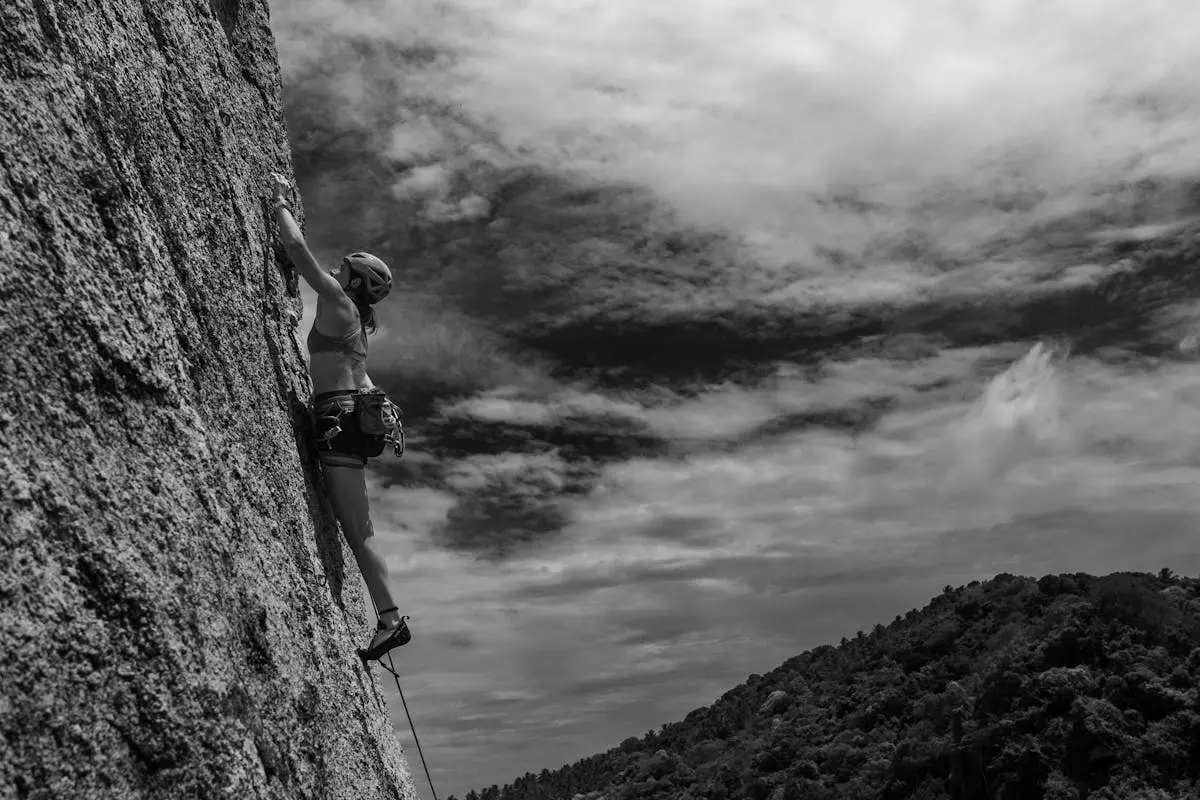5 Essential Climbing Fitness Tips for Beginners
Importance of climbing fitness for beginners
Developing climbing fitness is crucial for beginners. It helps in building strength, endurance, and flexibility, which are essential for conquering challenging climbs. The right fitness level can also minimize the risk of injury and enhance overall climbing performance. Improving climbing fitness can be achieved through:
Strength training to build upper body and core strength
Cardiovascular exercises to improve endurance
Flexibility exercises to enhance range of motion
Proper nutrition to fuel the body for climbing
Rest and recovery to allow the body to heal and adapt to training
Setting realistic fitness goals
Adjust your expectations and set achievable fitness objectives when starting your climbing journey. This will help you progress steadily and avoid feeling overwhelmed or discouraged. Focus on small milestones, such as improving your endurance, strength, and technique, rather than aiming for advanced climbing accomplishments from the start. Keep in mind that consistent effort and patience are key for long-term success in climbing.
Building strength and endurance for climbing
To build strength and endurance for climbing, focus on full-body workouts that target your core, arms, and legs. Incorporate exercises like pull-ups, push-ups, planks, and squats to improve your overall muscle strength. Additionally, include cardiovascular exercises such as running, cycling, or swimming to boost your endurance. Consistent training and a balanced diet are essential for climbing fitness. Stay hydrated and get plenty of rest to allow your muscles to recover and grow stronger.
Incorporating flexibility and balance exercises
When starting your climbing fitness journey, it’s important to focus on exercises that improve your flexibility and balance. These exercises can help enhance your overall strength and agility, making it easier for you to tackle various climbing challenges. Incorporating flexibility and balance exercises into your routine can help prevent injuries and improve your climbing performance. Remember, investing time in improving your flexibility and balance will benefit you in the long run as you advance in your climbing skills.
Proper nutrition and rest for climbing fitness
Proper nutrition and rest are crucial for climbing fitness. You need to fuel your body with a balanced diet that includes plenty of protein, carbohydrates, and healthy fats to support muscle recovery and energy levels. Make sure to drink enough water to stay hydrated. Rest is also important for muscle recovery and growth, so aim for 7-9 hours of sleep each night. Avoid overtraining and give your body time to recover between climbing sessions to prevent injuries and improve overall performance.
Ready to put these climbing fitness tips into action and experience the thrill of a real climb?
Our Intro to Rock Climbing Course is the perfect next step! This beginner-friendly course provides a comprehensive introduction to the fundamentals of rock climbing, including safety techniques, climbing movements, and essential gear knowledge. Under the guidance of our experienced instructors, you'll gain the confidence and skills to tackle the climbing wall with ease.
Contact us today to learn more about our guided climbing tours and embark on an unforgettable adventure into the great outdoors!

